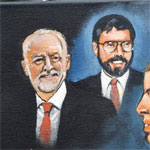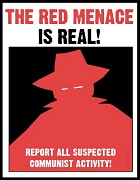|
OwlFancier posted:Jorbo goes out of his way to cultivate obsessive fandom though, that's literally his biggest talent as a psychologist. Like the whole structure of his poo poo is that it doesn't actually make sense but he takes a long time to say it and intersperses it with bland truisms so that you feel smart for agreeing with them and somehow miss that the whole has no substance or rigour. OwlFancier posted:I think a lot of the potter nerds actually do like it on its own merits, if I had to suggest a sociological basis for it I'd be more inclined to point at the idea that once the fandom reaches a critical mass it becomes a social space in and of itself and becomes self growing and reinforcing, helped along by marketing. People don't have to defend it because they can find other people who actually like it very easily and it forms the pretext for socialization. It's not that people like it because it's bad and they can defend it, they like it because a lot of people have a sufficient interest and comparable experience with it that it becomes the context through which other, better social experiences occur. Miftan posted:Jordan Peterson has never written anything that could count as philosophy in his life, unless you want to categorize all self help books as philosophy. He's a Christian Conservative but he actively tries to hide it. Because works that can stand on their own merits don't get that sort of fandom. e: In 1965 Wolff and Marcuse published A Critique of Pure Tolerance, which received a fair bit of negative press at the time, but not much attention until recent thunkers used it to accuse the left of being inspired by Frankfurt School tru intolerance. Guavanaut fucked around with this message at 10:08 on Jan 14, 2020 |
|
|
|

|
| # ? May 25, 2024 19:11 |
|
Qwertycoatl posted:I was surprised when I reread the first few Harry Potters that as much or more actually happens in them as in the later fat ones. Idk which one it was because all the post-Goblet of Fire books are a completely indistinguishable mess of awful garbage to me but I'm pretty sure one of them was essentially Harry Potter dicks about in a tent for 900 pages. I agree with this tbh: stev posted:I loved Harry Potter as a teenager but it wasn't really for the magic or the plot. An 800 book novel following a year in life of people who were my age in excruciating detail just sort of appealed to me. The first few were good because I kind of grew up with the characters and it was cool to have that relatable element of them going through the same bullshit I was... but with magic! It was essentially just fun wizard boy at wizard school having lighthearted hijinks and worrying about girls and being sick of homework!! It's just easy reading escapism and wish fulfilment stuff, and it did that pretty well. It went off the rails when Rowling started pissing about putting the whole voldemort grand narrative bullshit centre stage where previously it had always been a minor background concern because that was always overwrought crap and sidelined the fun bits (pretty sure they don't even go to wizard school in HP and the camping adventure). The series would have worked far better without the badly conceived looming existential dread etc, just a thing about normal boy (not the loving chosen savoir of the world) going to magic eton and getting into lots of crazy shenanigans and making some friends and maybe even learning a few things along the way!
|
|
|
|
I've read a plethora of self help books all with varying results. I'm tempted to give 12 rules an earnest attempt, putting the man aside to just look at how useful the book is, and to compare it with the others.
|
|
|
|
Stand up straight, clean your room, secrete octopamine to allow you to climb on top of your neighbour. Saved you a read.
|
|
|
|
https://www.nybooks.com/daily/2020/01/13/the-center-blows-itself-up-care-and-spite-in-the-brexit-election/ This is an interesting and kinda depressing article that got linked on a discord im in quote:Whereas the core value of the caring classes is, precisely, care, the core value of the professional-managerials might best be described as proceduralism. The rules and regulations, flow charts, quality reviews, audits and PowerPoints that form the main substance of their working life inevitably color their view of politics or even morality . These are people who tend to genuinely believe in the rules. They may well be the only significant stratum of the population who do so. If it is possible to generalize about class sensibilities, one might say that members of this class see society less as a web of human relationships, of love, hate, or enthusiasm, than, precisely, as a set of rules and institutional procedures, just as they see democracy, and rule of law, as effectively the same thing.
|
|
|
|
Azza Bamboo posted:I've read a plethora of self help books all with varying results. I'm tempted to give 12 rules an earnest attempt, putting the man aside to just look at how useful the book is, and to compare it with the others.  I'm pretty sure the entire book is just respun protestant ideology - work hard, all things in moderation E:fb
|
|
|
|
Guavanaut posted:I've never read any of the Harrys Potter. I'm not even sure why, I think it took off while I was I was reading The Last Continent and in the wrong age range, maybe? I always liked aspects of this idea, but if I recall right it's much more about explaining cult popularity rather than popularity per se. The original article uses the example of both star wars and Stanley Kubrick as examples of obsessive fandoms, and I'm not sure comparing Harry Potter to Kubrick tells us much about the blockbuster success of the former, though you could make a case for the popular consciousness of Kubrick films through parodies, homages etc. Someone also brought up pratchett as a contrast to Harry Potter, and that's an interesting case. Jedit would be better informed on this, but I'm pretty sure that Pratchett was one of if not the biggest selling UK author for about 15 years. By pretty much any normal metric it's a mainstream popular phenomenon, an order of magnitude bigger than "just" a successful book series, but the lack of penetration into popular consciousness says a lot, I think, about just how niche in some senses the book market is (and has been for many many decades) compared to TV and film.
|
|
|
|
I love to do philosophy
|
|
|
|
The big problem with the last three HP books is that there is functionally no story to them. The first four have a strong core mystery (literally the title of each book), with a central villain that ties them together but doesn't get any real spotlight, and a lot of history regarding his parents' generation that gives everything a nice lived in feel. Then The Goblet of Fire wrapped up basically every outstanding question about Voldemort and his parents, so they didn't really come up again, except that every other book was now entirely about beating Voldemort, which didn't have any real substance left to dig into, and the central mystery of each book... wasn't, basically. We meet the Order of the Phoenix right at the start of the book, then they don't play any major role until the ending. The Half Blood Prince involves them occasionally thinking "wonder who this half blood prince is then" until the very end when Snape goes "oh yeah, it was me. Anyway, bye". So the books got several times longer, but removed two thirds of what made the books compelling, with every significant detail of the other third already answered. So they were completely pointless and boring as poo poo. Apart from Dumbledore dying, I'm pretty sure you could skip from the end of the fourth book to the end of the series and not have missed anything important.
|
|
|
|
Ordinarily I'd blame this kind of thing on the influence of publishers trying to make their stories more marketable, but JKR is notorious for the level of self determination she has demanded of her franchise. Every success and failing of the franchise is pretty much her. Given the insane amount of money it has made, it's not all failure.
|
|
|
|
Niric posted:
Pratchett’s Discworld started out as a literal D&D parody, with jokes that only land if you have read Pern, CS Lewis, Asimov, Conan, Leiber, etc. What Star Wars and Potter shared is that they could be fully enjoyed by someone who had never read anything nominated for a Hugo.
|
|
|
|
Stormgale posted:https://www.nybooks.com/daily/2020/01/13/the-center-blows-itself-up-care-and-spite-in-the-brexit-election/ It's sort of okay but being an administrator or highly educated and liking a system of explicit rules is not the basis of a class. You know who has a lot of rules to learn and obey at all times? Welders. Because working with deadly heat and explosive gases under pressure in industrial environments ends up needing a lot of things to be checked and monitored. You know who else? The deeply religious. You know who else? Literally everyone living in a society learns the millions of assumptions and expectations of that society and obey them and frequently get rather upset when they see them broken. Rules, explicit or otherwise, are not the enemy, it is understanding and control of the rules which people respect or hate. Management are unaccountable to the workers so the rules are seen as oppressive or arbitrary, same as politicians and laws regardless of their actual values but they aren't particularly the source of the distastefulness and centering them as one won't resolve the problem. Raging at middle management is fine because they are likely to have bad worker consciousness but they aren't some seperate class to be opposed in the same way as the ruling class. Their mindset is bad but not fundamentally different from other workers.
|
|
|
|
Azza Bamboo posted:Given the insane amount of money it has made, it's not all failure. she failed to make art but she did make a hell of a lot of money, and isn't that what really matters in the end?  Doctor_Fruitbat posted:"wonder who this half blood prince is then" until the very end when Snape goes "oh yeah, it was me. Anyway, bye". omg spoiler that poo poo!!!!!! ThomasPaine fucked around with this message at 10:46 on Jan 14, 2020 |
|
|
|
radmonger posted:Pratchett’s Discworld started out as a literal D&D parody, with jokes that only land if you have read Pern, CS Lewis, Asimov, Conan, Leiber, etc. As someone whose fantasy experience when first read The Colour of Magic was one Michael Moorcock book my dad insisted I read as a kid I still got plenty out of Discworld despite no more than a loose cultural awareness of Conan.
|
|
|
|
You'll thank me when you don't have to read it.
|
|
|
|
namesake posted:It's sort of okay but being an administrator or highly educated and liking a system of explicit rules is not the basis of a class. You know who has a lot of rules to learn and obey at all times? Welders. Because working with deadly heat and explosive gases under pressure in industrial environments ends up needing a lot of things to be checked and monitored. You know who else? The deeply religious. You know who else? Literally everyone living in a society learns the millions of assumptions and expectations of that society and obey them and frequently get rather upset when they see them broken. I think the point Graeber is trying to make is that people are really sick of, and this is the biggie, rules that they can't change and disagree with. This is everyone with a stupid boss, nurses raging at the admin who make them fill out a million forms instead of caring for patients (every job has this to some extent) and gammons raging and unelected brussels bureaucrats.
|
|
|
|
Azza Bamboo posted:I've read a plethora of self help books all with varying results. I'm tempted to give 12 rules an earnest attempt, putting the man aside to just look at how useful the book is, and to compare it with the others. Watch Olly summarise it and see if it's worth giving a bad person money for. (It's not) https://www.youtube.com/watch?v=pbSn5rS8hKI
|
|
|
|
Niric posted:I always liked aspects of this idea, but if I recall right it's much more about explaining cult popularity rather than popularity per se. The original article uses the example of both star wars and Stanley Kubrick as examples of obsessive fandoms, and I'm not sure comparing Harry Potter to Kubrick tells us much about the blockbuster success of the former, though you could make a case for the popular consciousness of Kubrick films through parodies, homages etc. But yeah, there definitely seems to be a large difference between Potter and Peterson on one hand, and Pratchett on the other. All have had bestsellers, the Potter franchise has had blockbuster movies and Pratchett has had some cartoons and made for TV films, but like two of those have a group of people claiming it profoundly changed the way they thought, whereas the third has an obsessive little fangroup chronicling all the injokes, but I've never seen anyone trying to divide modern politics into Discworld factions or anything, and I think it would hurt my brain if I did. The closest I've seen is Vimes' Boots Theory floating around on Facebook. So I think it's worth drawing a distinction between "popular books and 1% of people get really indepth in dissecting the references (but there's always a few references casual enough that everyone can feel in on the joke)" and "popular books and 1% of people derive their entire worldview through the lens of the franchise and start applying it to politics and social interactions." I think a major part of difference there is, as you say, the popular consciousness bit. Pokémon is a bigger franchise than all of the above put together, but I've never seen people going around putting the Labour leadership candidates into types. (Long-Bailey is Grass/Bug, Lisa Nandy is Poison, Keir Starmer is Ghost, Emily Thornberry is Fairy, Jess Phillips.) radmonger posted:Pratchett’s Discworld started out as a literal D&D parody, with jokes that only land if you have read Pern, CS Lewis, Asimov, Conan, Leiber, etc. forkboy84 posted:I still got plenty out of Discworld despite no more than a loose cultural awareness of Conan.
|
|
|
|
radmonger posted:Pratchett’s Discworld started out as a literal D&D parody, with jokes that only land if you have read Pern, CS Lewis, Asimov, Conan, Leiber, etc. But this completely misses just how phenomenally successful Pratchett was/is, and would only serve to explain why he isn't that popular, which seems to be approaching the question in entirely the wrong way. In the 90s, he was Britain's bestselling author (he has since been overtaken by JK Rowling), and in terms of annual UK hardback sales alone he was second only to JK Rowling during Harry Potter’s heyday, with Pratchett’s books shifting 2.5m annual copies on average - more people in the 90s were reading Pratchett than were reading Asimov or Lewis, let alone had even heard of Pern or Leiber.
|
|
|
|
Pratchett moved on from D&D parody to his own stuff fairly rapidly, thank god
|
|
|
|
The fact that Harry Potter went from being a successful kids series to being a run of turgid fantasy epics is what made it successful. Giant tomes of fantasy lore with eight thousand characters and terrible subtexts are very very popular and funnelling a huge audience of kids into that just as they became teens is pure alchemy. Once you add in films, you have a gateway for parents to get engaged too and suddenly Harry Potter is a universal point of reference. It's a mistake to look at the relative quality of either end of the snake because it's the whole thing that was a success. Other kids novels were hugely popular but didn't successfully make the transitions (Dark Materials, Alex Rider) and other fantasy epic were blowing up but didn't have an inbuilt audience of children as their marketing campaign (you may have heard of a little novel called "A Game of Thrones" which was big at the time).
|
|
|
|
forkboy84 posted:As someone whose fantasy experience when first read The Colour of Magic was one Michael Moorcock book my dad insisted I read as a kid I still got plenty out of Discworld despite no more than a loose cultural awareness of Conan. Saying that, I still find, say, Wyrd Sisters or Guards! Guards! a more accessible read than the Colour of Magic and usually recommend them as start points, but TCoM is perfectly readable without any background in fantasy.
|
|
|
|
You're forgetting shipping and fanfic. Harry potter, by having relatable characters the same age range as the protagonists, was an outlet for much gossiping and discussions around sex and relationships for many teens especially women. Building an identity around media is a thing people do (see - console wars) and HP had fertile ground for girls to do so round characters relationships. This lead into the fanfic community which created ways for HP fans to have new media to consume and keep the community alive between/after books. No one was writing Vines/Carrot fanfic because that wasn't a focus of the text in same way relationships are in HP. Notice how many (but not all) of the people who relate HP to politics are female, and you can understand why it's a bigger part of their minds.
|
|
|
|
|
Azza Bamboo posted:I've read a plethora of self help books all with varying results. I'm tempted to give 12 rules an earnest attempt, putting the man aside to just look at how useful the book is, and to compare it with the others. Probably about as useful as this diagram from one of his other books 
|
|
|
|
Stormgale posted:https://www.nybooks.com/daily/2020/01/13/the-center-blows-itself-up-care-and-spite-in-the-brexit-election/ Lot of true stuff there, but I think it falls at the last hurdle. As it says at the start, to a good approximation no one of working age voted Tory. So the changes it talks about in the composition of the working class can’t have actually had the effect it claims. Boris Johnson did not actually win the election on the basis of masses of 20-something nurses annoyed at the amount of care records they have to fill in. So back up a step. I think he is right to say the two strongest forces in the UK are money and regulation. Everything works on the dialectic of some people inventing new ways to make money, and other people inventing rules to try limit the harm the first set of people cause. So cigarettes are sold in every shop, and smoking is banned in pubs. The thing is, old people mostly get given pretty much all the money they need, for free, without doing anything. So they really don’t care about that half of the equation. This applies whether it is Labour promising another 35 billion, or dire warnings of economic collapse. Those lived class experience is that if there is something they want but can’t have, it is because the Council says so. Understood that way, the election result becomes a simple matter of demographics. If working-age people are an electoral minority, it is going to be hard for a party called Labour to win.
|
|
|
|
Nothingtoseehere posted:No one was writing Vines/Carrot fanfic
|
|
|
|
Miftan posted:I think the point Graeber is trying to make is that people are really sick of, and this is the biggie, rules that they can't change and disagree with. This is everyone with a stupid boss, nurses raging at the admin who make them fill out a million forms instead of caring for patients (every job has this to some extent) and gammons raging and unelected brussels bureaucrats. Yeah that's what I'm saying too but phrasing it as a class divide means the particular rulemaking groups in society become the enemy rather than the actual class system which takes away the workers freedom and then creates a legion of monitors to enforce it.
|
|
|
|
Pesky Splinter posted:My favourite part of Harry Potter lore is wizards used to poo themselves in their robes, and magic away the piss and poo poo. The Lib Dems are still working on the magic part. People have already summed up the Pratchett sales thing better than I could, because they had links. I'm the wrong person to ask anyway.
|
|
|
|
https://twitter.com/michaeljswalker/status/1216749474393001985 e: Jedit posted:The Lib Dems are still working on the magic part.
|
|
|
|
radmonger posted:Lot of true stuff there, but I think it falls at the last hurdle. As it says at the start, to a good approximation no one of working age voted Tory. This ties back to a lot of stuff that's finally being written about in regards to the divide between young and old in this country - John Harris touched on that a lot (make of him what you will) but I think it talks to a deeper truth when you consider that actually the type of economic security that gets ascribed to Baby Boomers is by no means enjoyed by everyone of that generation.
|
|
|
|
What is the UKMT consensus on the The Secret Barrister book?
|
|
|
|
Nothingtoseehere posted:You're forgetting shipping and fanfic. Harry potter, by having relatable characters the same age range as the protagonists, was an outlet for much gossiping and discussions around sex and relationships for many teens especially women. Building an identity around media is a thing people do (see - console wars) and HP had fertile ground for girls to do so round characters relationships. This lead into the fanfic community which created ways for HP fans to have new media to consume and keep the community alive between/after books. No one was writing Vines/Carrot fanfic because that wasn't a focus of the text in same way relationships are in HP. Notice how many (but not all) of the people who relate HP to politics are female, and you can understand why it's a bigger part of their minds.
|
|
|
|
Guavanaut posted:I can't find Bond's original piece, but the way he uses 'fandom' does seem a bit in common with the way other media critics would use cult (and also uses it to take a few swipes at the RC Church, but it was Ireland in the 00s so that's expected). Trying to find it just now to check the Kubrick thing I just get a blog post and a forum thread both quoting a short excerpt, and any links I can find to the original article give a 404 error. Which is a shame, because like you I remember it being an interesting argument- though I'd totally forgotten that it shifts from talking about pop culture consumption to religion. josh04 posted:It's a mistake to look at the relative quality of either end of the snake because it's the whole thing that was a success. Other kids novels were hugely popular but didn't successfully make the transitions (Dark Materials, Alex Rider) and other fantasy epic were blowing up but didn't have an inbuilt audience of children as their marketing campaign (you may have heard of a little novel called "A Game of Thrones" which was big at the time). I think this is a really good point and speaks to the difficulty of talking about Harry Potter in comparative terms: it's just a massive, massive outlier in terms of commercial (and cultural) impact.
|
|
|
Guavanaut posted:I don't trust the internet enough to believe that. Ok, rule34 it almost certainly exists. But you don't have hordes of teenagers writing it on fanfiction.net and staking identities on whether Carrot should get with Vines or Angua.
|
|
|
|
|
all this talk of kids books had made me think of both the wind singer and artemis fowl for the first time in many many years, both great books for young me
|
|
|
|
Nothingtoseehere posted:No one was writing Vines/Carrot fanfic. Well obviously, everyone knows that vimes/vetenari weird psycho sexual edging using political intrigue as foreplay was the real deal
|
|
|
|
Niric posted:any links I can find to the original article give a 404 error. quote:What makes something an object of fandom? There are some works that attract obsessive fannish behaviour and some that don't -- and this seems to be independent of popularity. To take an example from LucasProduct, both Raiders of the Lost Ark and Star Wars are hugely popular movies, but only the latter has developed a significant fan base. Why? My theory is that for something to attract fans, it must have an aspect of truly monumental badness about it.
|
|
|
|
Guavanaut posted:I don't trust the internet enough to believe that. 177 results on AO3 
|
|
|
|
Speaking of edgy takes on religion, I think (regardless of it's other flaws) that theory does very well explain the people that went from Dick Dorkins New Atheism in the 00s to Gordon Peenertron Rules for Lobsters in the 10s.
|
|
|
|

|
| # ? May 25, 2024 19:11 |
|
namesake posted:Yeah that's what I'm saying too but phrasing it as a class divide means the particular rulemaking groups in society become the enemy rather than the actual class system which takes away the workers freedom and then creates a legion of monitors to enforce it. Sorry I'm not being clear. I agree with you and I think Graeber might as well. He's just saying the tories might have found a way to leverage that frustration into winning with people whose interests they don't represent.
|
|
|








 It felt like going home in a way.
It felt like going home in a way.
























